די בלײַענע פּלאַטן פֿון ראָמס דרוקערײַ
Avrom Sutskever [Abraham Sutzkever] / אברהם סוצקעװערLanguage: Yiddish
![Avrom Sutskever [Abraham Sutzkever] / אברהם סוצקעװער Avrom Sutskever [Abraham Sutzkever] / אברהם סוצקעװער](img/art/t2065630.jpg?1543485902)
מיר האָבן װי פֿינגער געשטרעקטע דורך גראַטן [1]
צו פֿאַנגען די ליכטיקע לופֿט פֿון דער פֿרײַ
דורך נאַכט זיך געצױגן, צו נעמען די פּלאַטן
די בלײַענע פּלאַטן פֿון ראָמס דרוקערײַ
מיר, טרױמער, באַדאַרפֿן איצט װערן סאָלדאַטן
און שמעלצן אױף קױלן דעם גײַסט פֿונעם בלײַ
און מיר האָבן װידער געעפֿנט דעם שטעמפּל
צו עפּעס אַ הײמישער אײביקער הײל
מיט שאָטנס באַפּאַנצערט, בײַ שײַן פֿון אַ לעמפּל
געגאָסן די אותיות – אַ צײל נאָך אַ צײל
אַזױ װי די זײדעס אַ מאָל אינעם טעמפּל
אין גילדענע יום־טובֿ מנורות – דעם אײל
דאָס בלײַ האָט געלױכטן בײַם אױסגיסן קױלן
מחשבֿות צעגאַנגען – אַן אות נאָך אַן אות
אַ שורה פֿון בבֿל , אַ שורה פֿון פּױלן
געזאָטן געפֿלײצט אין דער זעלביקער מאָס
די ייִדישע גבֿורה , אין װערטער פֿאַרהױלן
מוז אױפֿרײַסן איצטער די װעלט מיט אַ שאָס
און װער ס’האָט אין געטאָ געזען דאָס כּלי־זײן
פֿאַרקלאַמערט אין העלדישע ייִדישע הענט
געזען האָט ער ראַנגלען זיך ירושלים
דאָס פֿאַלן פֿון יענען גראַניטענע װענט
פֿאַרנומען די װערטער, פֿאַרשמאָלצן אין בלײַען
און זײערע שטימען אין האַרצן דערקענט.
צו פֿאַנגען די ליכטיקע לופֿט פֿון דער פֿרײַ
דורך נאַכט זיך געצױגן, צו נעמען די פּלאַטן
די בלײַענע פּלאַטן פֿון ראָמס דרוקערײַ
מיר, טרױמער, באַדאַרפֿן איצט װערן סאָלדאַטן
און שמעלצן אױף קױלן דעם גײַסט פֿונעם בלײַ
און מיר האָבן װידער געעפֿנט דעם שטעמפּל
צו עפּעס אַ הײמישער אײביקער הײל
מיט שאָטנס באַפּאַנצערט, בײַ שײַן פֿון אַ לעמפּל
געגאָסן די אותיות – אַ צײל נאָך אַ צײל
אַזױ װי די זײדעס אַ מאָל אינעם טעמפּל
אין גילדענע יום־טובֿ מנורות – דעם אײל
דאָס בלײַ האָט געלױכטן בײַם אױסגיסן קױלן
מחשבֿות צעגאַנגען – אַן אות נאָך אַן אות
אַ שורה פֿון בבֿל , אַ שורה פֿון פּױלן
געזאָטן געפֿלײצט אין דער זעלביקער מאָס
די ייִדישע גבֿורה , אין װערטער פֿאַרהױלן
מוז אױפֿרײַסן איצטער די װעלט מיט אַ שאָס
און װער ס’האָט אין געטאָ געזען דאָס כּלי־זײן
פֿאַרקלאַמערט אין העלדישע ייִדישע הענט
געזען האָט ער ראַנגלען זיך ירושלים
דאָס פֿאַלן פֿון יענען גראַניטענע װענט
פֿאַרנומען די װערטער, פֿאַרשמאָלצן אין בלײַען
און זײערע שטימען אין האַרצן דערקענט.
[1] Translitterazione / Transcription
Di blayene platn fun Roms drukeray
Mir hobn vi finger geshtrekte durkh gratn
tsu fangen di likhtike luft fun der fray
Durkh nakht zikh getsoygn, tsu nemen di platn
di blayene platn fun Roms drukeray
Mir, troymer, badarfn itst vern soldatn
un shmeltsn oyf koyln dem gayst funem blay
Un mir hobn vider geefnt dem shtempl
tsu epes a heymisher eybiker heyl
Mit shotns bapantsert, bay shayn fun a lempl
gegosn di oysyes – a tseyl nokh a tseyl
Azoy vi di zeydes a mol inem templ
in gildene yontev menores – dem eyl
Dos blay hot geloykhtn bayn oysgisn koyln
makhshoves – tsegangen an os nokh an os
A shure fun bovel, a shure fun poyln
gezotn, gefleytst in der zelbiker mos
Di yidishe gvure, in verter farhoyln
muz oyfraysn itster di velt mit a shos
Un ver s’hot in geto gezen dos klezayen
farklamert in heldishe yidishe hent
Gezen hot er ranglen zikh Yerusholaim
Dos faln fun yene granitene vent
Farnumen di verter, farshmoltsn in blayen
un zeyere shtimen in hartsn derkent.
Di blayene platn fun Roms drukeray
Mir hobn vi finger geshtrekte durkh gratn
tsu fangen di likhtike luft fun der fray
Durkh nakht zikh getsoygn, tsu nemen di platn
di blayene platn fun Roms drukeray
Mir, troymer, badarfn itst vern soldatn
un shmeltsn oyf koyln dem gayst funem blay
Un mir hobn vider geefnt dem shtempl
tsu epes a heymisher eybiker heyl
Mit shotns bapantsert, bay shayn fun a lempl
gegosn di oysyes – a tseyl nokh a tseyl
Azoy vi di zeydes a mol inem templ
in gildene yontev menores – dem eyl
Dos blay hot geloykhtn bayn oysgisn koyln
makhshoves – tsegangen an os nokh an os
A shure fun bovel, a shure fun poyln
gezotn, gefleytst in der zelbiker mos
Di yidishe gvure, in verter farhoyln
muz oyfraysn itster di velt mit a shos
Un ver s’hot in geto gezen dos klezayen
farklamert in heldishe yidishe hent
Gezen hot er ranglen zikh Yerusholaim
Dos faln fun yene granitene vent
Farnumen di verter, farshmoltsn in blayen
un zeyere shtimen in hartsn derkent.
Contributed by Riccardo Gullotta - 2021/5/29 - 00:15
Language: English
English translation / ענגליש איבערזעצונג / תרגום לאנגלית / Traduzione inglese / Traduction anglaise / الترجمة الإنجليزية /Englanninkielinen käännös:
Yad Vashem
Yad Vashem
THE LEADEN PLATES OF ROMM’S PRINTING WORKS
Like fingers reaching out between the bars
To seize the bright air of freedom
We moved through the night to steal
The leaden plates of Romm’s Printing Works
Dreamers who had to become soldiers
We converted spirit of lead into bullets.
As once again we lifted the seal
To enter into the shelter of the ancient cave,
Armored with shadow, lit by lamps,
We spilled the letters – line after line –
Just as our forefathers in the Temple
Poured the oil into the festive menorahs.
By the casting of bullets the lead
Illumined thoughts – letter after letter melted.
One molten line from Babylon, another
From Poland, flowed into the same mold.
Jewish bravery once hidden in words
Must now strike back with shot!
Whoever saw this ammunition strapped round
The brave Jewish boys in the ghetto,
Saw Jerusalem struggling for life,
The fall of those granite walls.
Whoever understood the fiery words
Recognized their voices in his heart.
Like fingers reaching out between the bars
To seize the bright air of freedom
We moved through the night to steal
The leaden plates of Romm’s Printing Works
Dreamers who had to become soldiers
We converted spirit of lead into bullets.
As once again we lifted the seal
To enter into the shelter of the ancient cave,
Armored with shadow, lit by lamps,
We spilled the letters – line after line –
Just as our forefathers in the Temple
Poured the oil into the festive menorahs.
By the casting of bullets the lead
Illumined thoughts – letter after letter melted.
One molten line from Babylon, another
From Poland, flowed into the same mold.
Jewish bravery once hidden in words
Must now strike back with shot!
Whoever saw this ammunition strapped round
The brave Jewish boys in the ghetto,
Saw Jerusalem struggling for life,
The fall of those granite walls.
Whoever understood the fiery words
Recognized their voices in his heart.
Contributed by Riccardo Gullotta - 2021/5/29 - 00:18
Language: Italian
Traduzione italiana / איטאַליעניש איבערזעצונג / תרגום לאיטלקית / Traduction italienne / الترجمة الإيطالية / Italiankielinen käännös:
Riccardo Gullotta
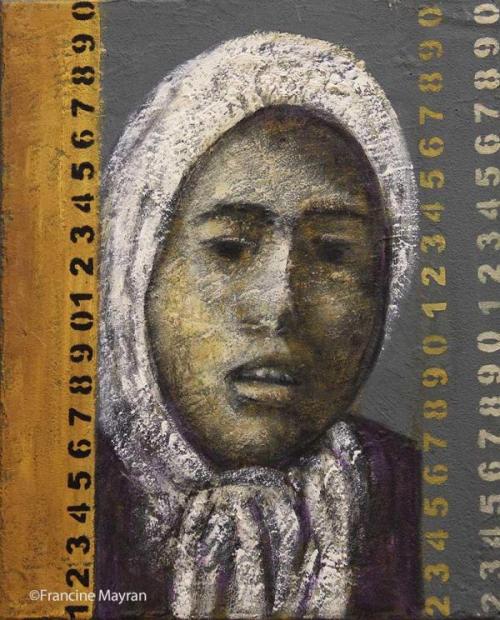
Riccardo Gullotta

Francine Mayran - Anna Maria Settela Steinbach bambina rom olandese assassinata ad Auschwitz
LE LASTRE DI PIOMBO DEGLI STABILIMENTI TIPOGRAFICI ROMM
Come dita tese attraverso le sbarre
Per afferrare l'aria lucente della libertà
Ci siamo mossi di notte per trafugare
Le lastre di piombo delle stamperie Romm [2]
Sognatori che dovevano diventare soldati
Trasfondemmo lo spirito del piombo nei proiettili
Ancora una volta abbiamo sollevato il sigillo
Per entrare all’interno del vecchio rifugio
Avvolti nell'ombra, al bagliore di una lampada
Abbiamo rovesciato i caratteri, una riga dopo l’altra,
Come facevano gli anziani del Tempio quando
Versavano l'olio nella menorah [3]
Così abbiamo fuso le nostre interlinee e righe di caratteri
Fondendo i proiettili il piombo
Illuminava le menti man mano che le lettere si scioglievano
Una riga fusa da Babilonia, un’altra dalla Polonia
Scorrevano nello stesso stampo
La grinta ebraica, a lungo nascosta nelle parole
Deve reagire fulminea!
Chiunque abbia visto queste munizioni cinte
Dai coraggiosi ragazzi ebrei nel ghetto,
Ha visto Gerusalemme lottare per la vita,
La caduta di quelle mura granitiche.
Chi ha colto le parole infuocate
Ha riconosciuto le loro voci in cuor suo.
Come dita tese attraverso le sbarre
Per afferrare l'aria lucente della libertà
Ci siamo mossi di notte per trafugare
Le lastre di piombo delle stamperie Romm [2]
Sognatori che dovevano diventare soldati
Trasfondemmo lo spirito del piombo nei proiettili
Ancora una volta abbiamo sollevato il sigillo
Per entrare all’interno del vecchio rifugio
Avvolti nell'ombra, al bagliore di una lampada
Abbiamo rovesciato i caratteri, una riga dopo l’altra,
Come facevano gli anziani del Tempio quando
Versavano l'olio nella menorah [3]
Così abbiamo fuso le nostre interlinee e righe di caratteri
Fondendo i proiettili il piombo
Illuminava le menti man mano che le lettere si scioglievano
Una riga fusa da Babilonia, un’altra dalla Polonia
Scorrevano nello stesso stampo
La grinta ebraica, a lungo nascosta nelle parole
Deve reagire fulminea!
Chiunque abbia visto queste munizioni cinte
Dai coraggiosi ragazzi ebrei nel ghetto,
Ha visto Gerusalemme lottare per la vita,
La caduta di quelle mura granitiche.
Chi ha colto le parole infuocate
Ha riconosciuto le loro voci in cuor suo.
[2] Romm fu una famosa casa editrice ebraica a Vilnius. Il capostipite Baruch ben Joseph fondò la prima stamperia a Grodno. Una seconda stamperia fu aperta a Vilnius nel 1799. Tra le pubblicazioni più famose il Talmud babilonese e i quotidiani socialisti.
[3] E’ il candelabro d’oro a 7 bracci che stava nel tabernacolo del Tempio. E’ il simbolo per eccellenza dell’ebraismo, oggi emblema dello stato di Israele.
[3] E’ il candelabro d’oro a 7 bracci che stava nel tabernacolo del Tempio. E’ il simbolo per eccellenza dell’ebraismo, oggi emblema dello stato di Israele.
Contributed by Riccardo Gullotta - 2021/5/29 - 00:31
×
![]()
Note for non-Italian users: Sorry, though the interface of this website is translated into English, most commentaries and biographies are in Italian and/or in other languages like French, German, Spanish, Russian etc.

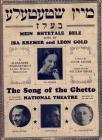
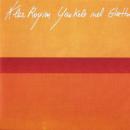

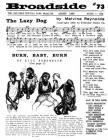
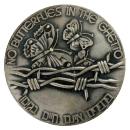
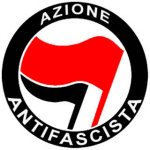

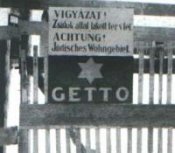
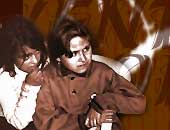
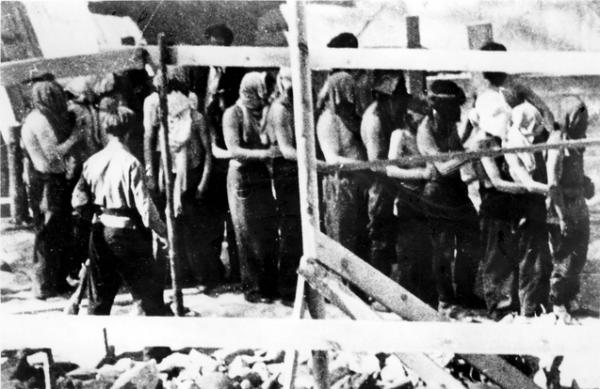
[ 1943 ]
ליד / שִׁיר / Poesia / A Poem by / Poésie / قصيدة / Runo:
Avrom Sutskever
מוזיק / לחן / Musica / Music / Musique / موسيقى / Sävel:
Michael Heiser
Vilnius 1941-1944
La resistenza ebraica nel ghetto di Vilna prese il nome di FPO , acronimo di Fareynikte Partizaner Organizatsye , in yiddish פֿאַראײניקטע פּאַרטיזאַנער אָרגאַניזאַציע ossia Organizzazione Partigiana Unita. Entrarono a farne parte cinque componenti: quella comunista che rispondeva a Yitzhak Wittenberg, quella revisionista nota come Betar che raccoglieva i sionisti di destra, referente Josef Glazman, quella socialista Hashomer Hatzair, guidata da Abba Kovner, il movimento scoutista Hanoar Hatzioni guidato da Nissan Reznik, i socialisti del Bund che rispondevano ad Abraham Chwojnik.
L’FPO arrivò a contare 300 membri organizzati in due unità sotto il comando di Glazman e Kovner. Compirono numerosi atti di sabotaggio contro l’invasore nazista, ma non riuscirono a mobilitare la popolazione del ghetto e gli organi di autogoverno ebraici per sollevarsi contro i tedeschi.
A Ponar/Paneriai/פאנאר , in polacco Ponary , sulla strada che conduce da Vilnius a Varsavia, SS e collaborazionisti locali misero in atto dal 1941 un massacro di 100mila civili, l’80% ebrei . Tra le vittime del massacro ci furono migliaia di prigionieri di guerra polacchi, zingari, russi e comunisti lituani.
Nel 1944 un’ottantina di internati furono prelevati dal lager di Stutthof per bruciare i corpi delle vittime, mischiarli a sabbia e reinterrarli in modo da non lasciare tracce. Furono 11 i sopravvissuti che riuscirono a fuggire. Si deve a loro e ai diari del giornalista polacco Kazimierz Sakowicz la ricostruzione dei massacri.
[Riccardo Gullotta]